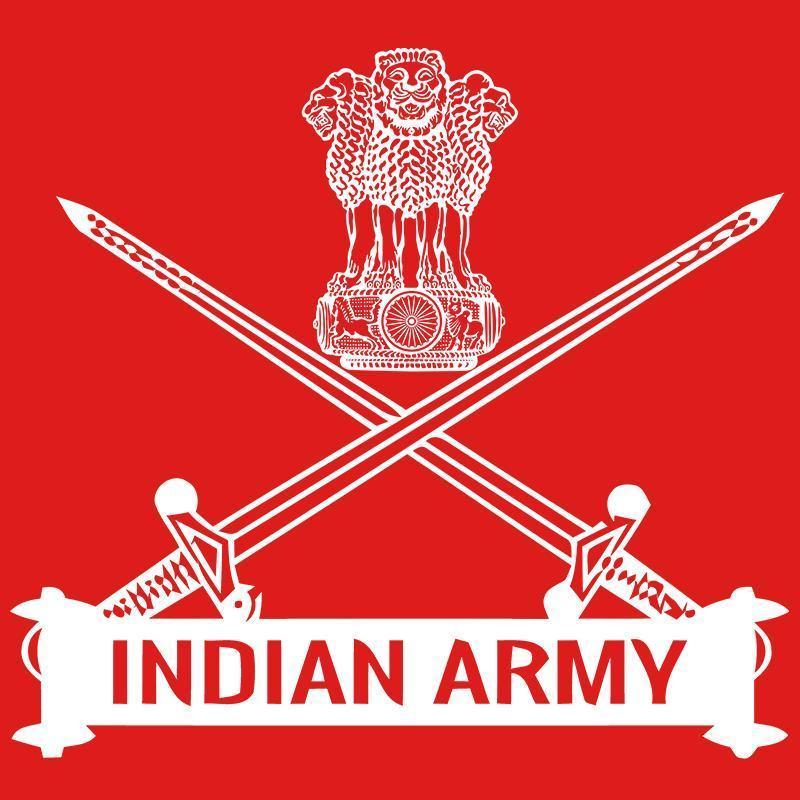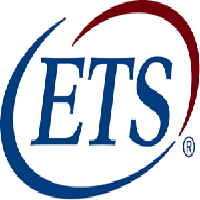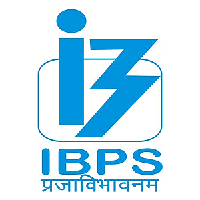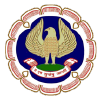
Short Service Commission (JAG)
Based on the latest pattern | Detailed Analysis
The Indian Army organizes this exam is to hire eligible and unmarried male and female Law Graduates for JAG Advocate General Branch. The post of Judge Advocate General in India is held by a major general who is the legal and judicial chief of the Army. JAG officers provide legal help to the military in all aspects. JAG officer conducts all legal actions from framing drafts to appearing at courts and military tribunals.
Short Service Commission (JAG) Conducting Body:
The Indian Army is the land-based division and the largest section of the Indian Armed Forces. This exam is an offline based exam. Applicants can apply for the exam in online mode through the official website.
Short Service Commission (JAG) Important Dates:
|
Events |
Dates |
Mode |
Link |
|
Registration Date |
Will Be Updated Soon |
Offline |
|
|
Application Date |
Will Be Updated Soon |
||
|
Admit Card |
Will Be Updated Soon |
||
|
Exam Date |
Will Be Updated Soon |
||
|
Result Date |
Will Be Updated Soon |
Short Service Commission (JAG) Selection Procedure:
Shortlisted Candidates are called for SSB interview at Selection Centres
Short Service Commission (JAG) Exam Pattern:
SSB Interview Procedure:
The SSB Interview Procedure comprises of two-stage selection process: Stage I and Stage II.
(Applicants, those qualify the Stage I, only they are permitted to appear for Stage II)
Stage 1: The stage consists of Officer Intelligence Rating (OIR) tests and Picture Perception & Description Test (PP & DT). Stage 1 is a screening test.
Stage 2: This stage is held for four (4) days. Stage II consists of Psychology Tests, Group Testing Officer Tasks (GTO Tasks), Conference&Interview.
Five Days SSB Selection Procedure:
Day 0 (Reporting):
On this day, applicants have to report to the selection center. Applicant's original documents along with photocopies are verified. After thedocuments verification, Personal Information Questionnaire Forms are filled.
PIQ Forms: In this form, applicants have to fill their personal details regarding family background,educational profile, etc. This form is very important. It forms a base of questions, which might be put to a candidate at the individual interview round.
Day 1 (Screening Test):
On the next day, it is in Stage 1. Applicants have to give an Intelligence Test (Verbal & Non Verbal) & Picture Perception Test. In the PP test, slide (hazy or clear) is shown for 30 seconds & applicants have to write the story. After finishing this test, the group discussion round takes place. This sequence is commonly known as Picture Perception and Discussion Test (PPDT).
Intelligence Test: It comprises verbal and non-verbal questions. It is a written test which includes multiple choice questions. The time of each question is 30 seconds.
Picture Perception and Discussion Test (PP & DT): This test includes story writing and discussion. A picture is shown to the candidates for 30 seconds and applicants have to write a story based on the picture in 3 minutes.
Day 2 (Psychology Tests):
It is a written tests, organized by a Psychologist. In these tests, the applicant's psychological suitability is checked to be an officer.
Thematic Apperception Test (TAT): It is called Picture Story writing. This test is very similar to PPDT. In this test, about 11 pictures are shown. Each picture is displayed just for 30 seconds after that applicants have to write a story based on the picture within 4 minutes. After 4 minutes another picture is displayed and the same procedure is followed till the last slide. The twelfth slide is blank where a applicants is supposed to write any story of their own choice.
Word Association Test (WAT): It is the second psychological test of the SSB selection procedure.. Applicants have to write the first thought that comes to their mind for those words.
Situation Reaction Test (SRT): In the test,candidates get a booklet with 60 situations, written on it.
Self Description Test (SD): In this test, applicants have to write their opinion about their parents,friends, themselves, teachers & others. The time allotted is 15 minutes.
Day 3 & 4 Group Testing Officer Tasks :
The Tests are interactive indoor and outdoor activities as a combination of mental and physical work. These tests are as follows:
Group Discussion: In this round, a certain situation or topic (mostly current affairs) is given to a group of applicants. They are expected to discuss the different aspects of the issue. Group Task Officer observes each applicant during the course of the group discussion.
Group Planning Exercise (Military Planning Exercise): In this round, a model of real life practical circumstances are presented to a group of applicants. .
Progressive Group Tasks (PGT): In this round, the group of candidates has to cross some obstacles with the help of supporting materials such as plank,rope, wood log etc.
Half Group Tasks: This round is the same as PGT but the numbers of group members are half. Applicants get more chances to show their potential.
Individual Obstacles: In this round, applicants are required to attempt 10 obstacles individually.
Group Obstacles Race or Snake Race: In this round, all group members compete with other groups.
Command Task: In this task, an aspirant acts as a commander. He is required to cross some obstacles with the help of 2-3 subordinates.
Lecturette: In this round, each applicant has to give a lecture for 3 minutes on a topic.
Final Group Task: It is the same as PGT. Applicants have another chance to show their potential.
On the same day, the applicant's interview is conducted. It involves a personal conversation with Interviewing Officers.
Day 5 (Conference):
On the final day, applicants & all the SSB board members sit together and have a chat with the applicants to ask a few general questions.The conference is just to decide whether the applicants is recommended as an officer in Indian defense forces or not. Applicants are required to appear before the complete Board of Examiners, which consist of President, Deputy President, all the GTOs, all the psychologists,and Technical Officer.
Within an hour, the SSB result is declared after completion of the board meeting. Selected applicants undergo a medical test for further 3 or 5 days. After qualifying the applicant medical test, the final merit list is announced.
Short Service Commission (JAG) Eligibility Criteria:
Nationality
-
Candidate must either be: (i) A resident of India or (ii) A national of Bhutan, or (iii) A national of Nepal or (iv) A Tibetan refugee who came to India before the 01st of Jan. 1962 with the aim of permanently locating in India or (v)A person of Indian origin who has migrated from Pakistan, Burma, Sri Lanka and East African countries of like Uganda and Kenya, the United Republic of Tanzania, Malawi, Zambia, Zaire and Vietnam and Ethiopia with the aim of permanently settling in India provided that an applicant applying to categories (ii), (iii), (iv) and (v) above shall be a person in whose favour a certificate of qualification has been issued by the Govt. of India.
-
Certificate of qualification will, however, not be necessary in the case of aspirants who are Gorkha citizens of Nepal.
Age Limit
-
Candidates' age should be between 21 to 27 years as on 01st January 2020 (Born not earlier than 02nd January 1993 and not later than 01st January 1999 both dates inclusive).
Educational Qualifications
-
Candidates should possess Minimum 55% total Marks in LLB Degree (three years professional course after graduation or five years of education after 10+2 examination)
-
Candidates should be qualified for enrollment with the Bar Council of India/State. The candidates should be from a College/University recognized by the Bar Council of India.
Short Service Commission (JAG) FAQs:
Ques 1. I am a law graduate. Am I eligible to apply for JAG?
Ans: Yes, both male and female law graduates can become Judge Advocate General. Law graduates, who aspire to join the Indian army judge advocate general category can join this post. The introductory selection is based on your scholastic performance. There is no Written Test and shortlisted law graduates directly face the SSB Interview.
Ques 2. How strict are the physical standards for JAG entry in the Indian army for women?
Ans: Physical standards and basic orientation course for all branches for both officer cadets(Men and Women) are the same. Regardless of you being a JAG or pilot or logistics officer, the ab-initio training in the naval academy is the same.
Regarding weight, when you are through with the SSB you will be sent for medicals. The doctors examine your physical standards including weight. If you are underweight/ overweight, you will be provided a maximum of 40 days grace period to revisit medicals by reducing/ increasing your weight to par with the criteria. The height requirement for girls is 152 cms, whereas weight 42 kgs and eyesight of +-3.5D.
Ques 3. What work are the JAGS assigned in the Indian Army?
Ans: Judge Advocate Generals take care of legal and judicial matters of the Indian Army, whether it is representing the Indian Army Stand in certain matter, or giving legal advice to presiding officer during a court-martial.
Officers Under this Entry are mostly law Graduates and work as a Defence or Prosecution Lawyer during a Court Martial. Also, A military lawyer's job is similar to a civilian lawyer in their day-to-day duties.
Ques 4. What is the usual cut off for JAG entry, Indian Army/ Navy?
Ans: They are normally altering it according to the numbers of the form filled so it is very hard to predict the exact cutoff. But if you have a minimum of 55% you can anticipate the call letter for the SSC.
Ques 5. What are the promotional aspects of the Indian Army JAG?
Ans: The Army has a pyramidal structure having most of the officer’s vacancies at the bottom and a few at top. Promotions are, therefore, two kinds. First is based on the time scale where an officer is qualified for promotion because he has served for several years.
Second kind of promotion is Selection.
The Indian Army has a separate JAG branch which includes legally fitted army officers.
The promotional perspectives for JAG Branch are very related to any other branch in the armed forces.
The post of Judge Advocate General in India is upheld by a Major General who is the Legal and Judicial Chief of the Army. one can reach up to the rank of Major General through JAG Branch.
Ques 6. What preparation must be done for PP & DT for an SSB interview?
Ans. PP&DT test is conducted to check observation, thinking and reaction(words and or action) of a candidate. Its a matter of personality i.e. the way of thinking and acting that remain unchanged if only stories are practiced by a candidate. Do an in-depth study of one's observation, thinking, and action. One should try to correct flaws in his personality. If one possesses a noble and mature personality, he will be able to clear all the tests including the screening.
Ques 7. What does the GTO look in the candidates during SSB Lecturette?
Ans: Let us understand the lecturate task. It makes us:
-
to think on feet
-
address an audience confidence
These qualities should be present in good leaders.
So, the GTO looks for quick thinking abilities, and how confidently you address the audience.
Ques 8. When will the BHC exam 2021 be held?
Ans. Oct 2021 (Tentative)
Ques 9. How can a candidate apply for the exam?
Ans. The candidates can apply through the official website.
Ques 10. Any graduate can apply for this exam?
Ans. Go through the educational qualifications section given above.
Conclusion: This exam offers such a good opportunity for eligible applicants who are eager to join the Indian Army. Law Graduates who are willing to make their careers as JAGs Judge Advocate General have a good chance through this exam. Aspirants must take the benefit of this opportunity. The team of estudentbook wishes you all the best for your upcoming future.

.jpg)

.jpg)

.jpg)
.jpg)
.jpg)
.jpg)


